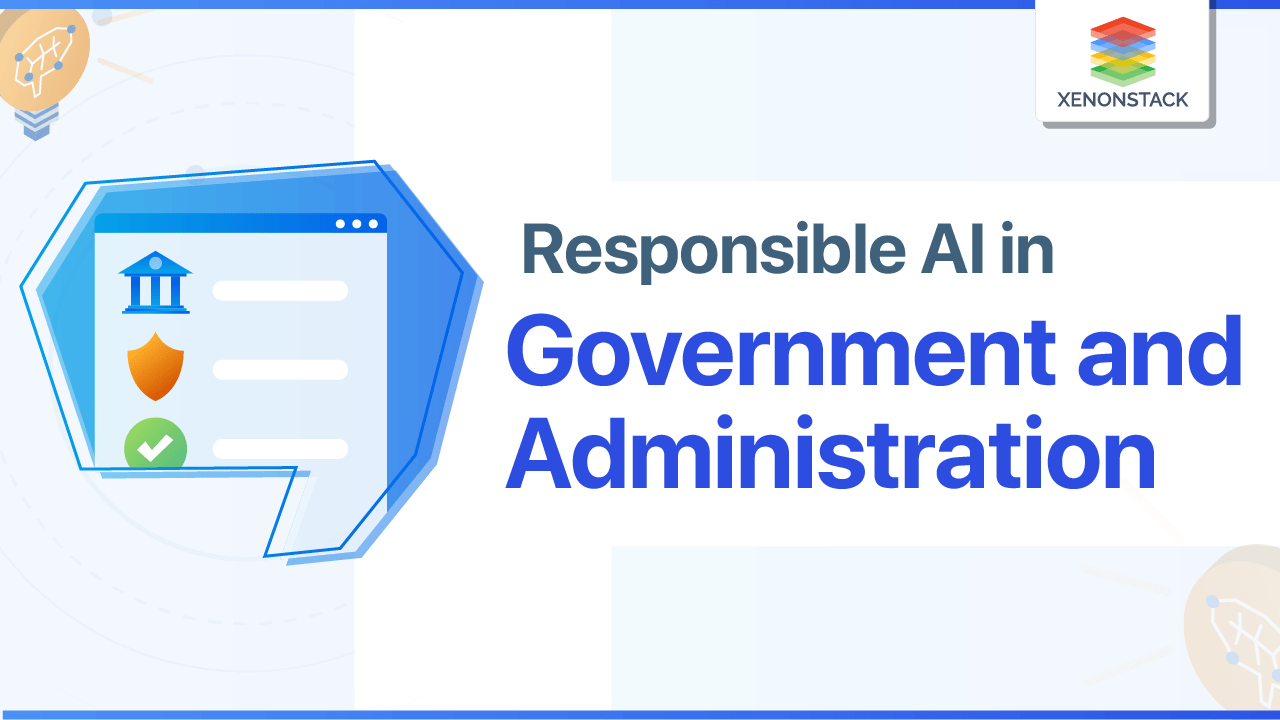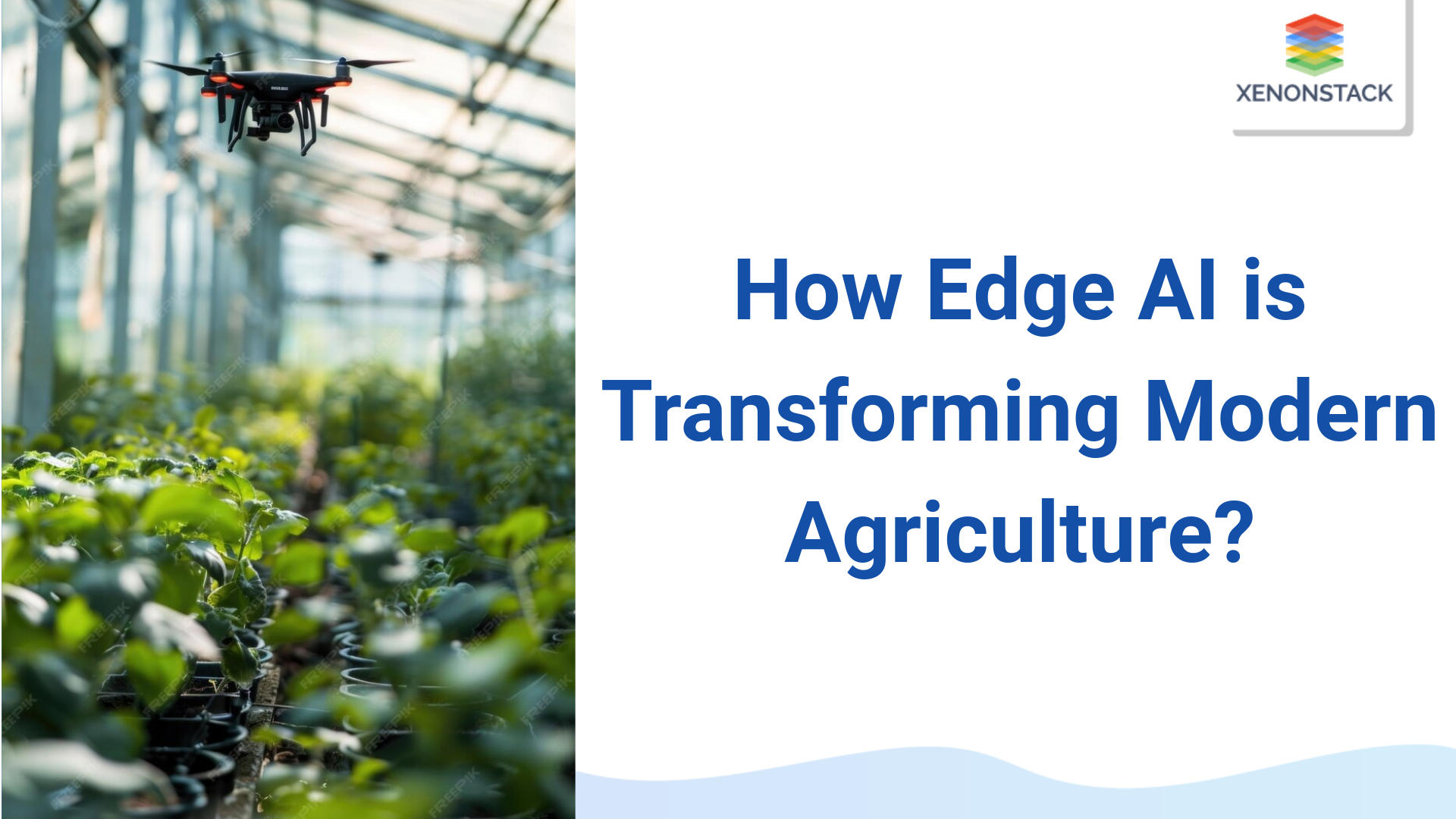
Introduction to Responsible AI in Government
Governments are incorporating Artificial Intelligence into decision-making that performs very well and gives beneficial results. Such as they deployed AI systems for managing hospital operations and capacity, regulating traffic, and determining the best way to deliver services and distribute social benefits for the growth of the country and nation.
However, some government AI systems are treating or targeting a specific community unfairly or unwittingly. It makes decisions by being biased against a particular portion of its constituencies.
What is Responsible AI in Government?
It is an approach of proper governance, transparency, and a thoughtfully conceived process based on AI decision-making responsibilities.Responsible AI principles cultivate the Government and citizens' trust and improve the process of providing societal well-being. It fosters government legitimacy and improves AI adoption.
- Foster Government Legitimacy: While AI-based applications make up a small percentage of all government systems and procedures, they significantly affect public perceptions of Government. Responsible AI makes it possible to create AI applications responsibly that encourage the belief that the Government is serving its citizens with their best. It ensures to treat everyone with equality and fairly. With the increasing use of AI, its impacts have become more widespread; thus, the reason to use responsible AI also grows.
- Support AI uses for Government: It is said that more than 30% of AI systems have ethical issues. These issues led people to go against the use of AI. To realize the potential benefits of AI, it must have transparency to spot and address those bugs and ethical issues. Responsible AI smoothen the process of AI adoption for governments.
The implementation of ethics is crucial for AI systems to provide safety guidelines that can prevent existential risks for humanity. Click to explore our, Ethics of Artificial Intelligence
What are the Challenges of Responsible AI in Government?
The primary reason for such issues is the way it is created and trained. Recently, some AI systems have come into existence that shows irresponsible behavior. It gives unintentional harm that affects individuals and society. Therefore, the Government has to design, develop, and deploy AI systems by considering Responsible AI principles. Let's discuss some recent AI systems issues that come to notice:
- When college entrance exams were canceled due to this pandemic, the UK government used an AI system to check student performance and determine grades. An algorithm is designed to determine the grades of students based on their past performance. It is noticed that systems have a bias against some students. It reduces the grades of approximately 40% of students that revoked their admissions. It was biased against a test taker from a challenging socio-economics background.
- An AI system is used to predict the likelihood a person commits benefits or tax fraud. Citizens initiate legal actions after discovering that the system targets the neighbor with low incomes and belongs to minority residents. It is determined that the system breaches human rights laws and the EU'S General data protection regulation. Therefore the Dutch court ordered the government to stop using this algorithm.
- In Argentina, the government started using facial recognition to find criminal suspects using the database CONARC contained information of people suspected of crimes. This system contains information about children as young as 4. Most of them store their full names, which is illegal. Moreover, it is trained and tested on adult data, so it is bad at handling children.
- Once the US deployed a control system, an AI-based biometric scanning application builds on machine learning. Concerns arise about the agency's accountability and procurement practices when this system cannot explain the failure rates. It is due to the opaque nature of technology.
Adopting AI in critical situations, such as healthcare, criminal justice, employment, led to lawsuits. These issues increase criticism and legal actions. As a result, it also affects the adoption of AI. The demand for transparent AI systems is increasing that can spot the issues and mitigate them.
Such cases increase trust issues and harm government legitimacy and citizens' belief and support for governmental authority.
Why do we need Responsible AI In Government?
According to a report, 92% of US citizens said that the improvement in digitization services and the use of AI improves the Government's image for them. So governments can invest in AI to improve the services and societal tasks that will increase the trust of their citizens. The solution allows delivering AI applications responsibly and ethically. A complete roadmap for a responsible AI program can be created using its principles, policies, and regulation to deliver human-centered AI.
Lack of accountability and bias in data of AI models undermines the prospects of AI uses for good. A system is required that can recognize ethical, moral, legal, cultural, and socioeconomic implications. It encourages a human-centered, trusted, accountable, and interpretable AI system.
Let's discuss why we require a responsible AI framework to be implemented in our AI applications.
- Mitigate bias risks and ethical issues
- Responsible AI principles to increase awareness and encourage the use of Trustworthy AI.
- To address public and societal challenges and safe human rights.
- To serve the citizens and growth of societal values.
- Improving the trust of a citizen in their Government increases the speed of growth of a nation double.
Approach to Building Responsible AI system
A proper approach is required to build a responsible AI system.
- A team of stakeholders is required to track and make sure that AI enhances human decisions, not replaces them.
- A regular monitoring system requires that you can review it.
- Integration with standard tools, data models, and a proper plan is required to address gaps coming in the AI system.
- Governments can use procurement to promote the adoption of Responsible AI. It can make sure to design and make an ethical and transparent system by using Responsible AI principles for integrating AI into public sector decision-making.
Modern methods build engines that are more responsible, transparent, and auditable. Read more about Explainable AI in Banking and Financial Services
Use Cases of Responsible AI In Government
The Use cases of Responsible AI In Government an Administration are defined below:
Responsible AI for Government Services
Government can benefits in various sectors by adopting Responsible AI.
Social Welfare
- Identifying Fraudulent Benefit Claims: Cases of fraudulent claims cost the government billions. In the UK, it is expected that £1.5bn has been lost after the pandemic due to fraudulent claims. So, AI can find the patterns of application from different resources and help the government make claims decisions. But the problem has not been solved yet. The system could help make a decision, but it may also be possible that the applicant wants to know the reason for the rejection of their application. But the system would not give a reason for its result due to its black-box functionality of advanced ML algorithms. Therefore the Government here requires a system that could provide transparency and accountability for their decision. Here Responsible AI could help to provide that transparency and clear all the doubts of the customers.
Healthcare
- Tracking Disease Spread: AI can reduce the spread of corona or other diseases by cross-checking patients with similar symptoms and detecting patterns. We know that the shortage of resources becomes a bottleneck for handling and fighting such pandemics. Hence, we cannot waste and use resources when we are not sure that a person requires that. Because due to the use of resources at the wrong place, it may be possible that a person who actually requires them may not get them due to a shortage of resources. Therefore it is necessary to have a fully confident result of the ML algorithm. Explainable AI can tackle such situations.
Domestic Security
- Criminal Justice: There are several AI applications that the Government was using for finding criminals. But the bias is noticed in such applications. For instance, COMPAS is an application that targets humans' rights and leads to ethical issues. Therefore an application is required to mitigate those risks and provide an application that can value human rights and ethics.
Transportation
- Self-driving: The use of self-driving autonomous vehicles is a hot topic. No doubt, it decreases the cases of incidents on roads that are happening due to human errors. But still, it is a topic of controversy to know how it will react in a situation of Trolly problem. It also stores and contains several confidential data on the cloud. Hackers can attack it to steal and use it to cause highly destructive results, so here to tackle this situation, an approach is required, such as Privacy and preserving AI, to ensure that data will always remain safe.
- Identify Incidents: Traffic congestion is a big issue for citizens that is also a headache for governments. The primary reason for the congestion is incidents that happen on roads. Social media can help to know the current situation using AI and accordingly guide citizens for alternative roads.
Education
- Personalized Education: AI can analyze the learning patterns of students. It can check the student's performance and find topics which are taught, how it is taught, and if not understandable, then what is the reason. So that accordingly we can plan the next set of activities to improve the level of education.
- Marking Exam paper: AI can also be used to mark the exam score for students. During this pandemic, the UK government used an AI system to give marks to students based on their previous performance for an entrance exam that was canceled due to the pandemic. Approximately 40% of students notice system reductions in their marks which revoked their admission. And after that, some students went on strike. But the system is not able to explain the bias, and a decision is made. Therefore to mitigate this type of issue, a responsible approach is required.
Self-driving cars main goal is to provide a better user experience and safety rules and regulations. Click to explore our, Role of Edge AI in Automotive Industry
Public Services
Customer Service Chatbot: Chatbot can be used for various tasks by Government, such as:
- Knowledge search and delivery
- Scheduling meetings
- Answering FAQs
- Directing requests to the appropriate area within the Government
- Filling out forms
- Assisting with searching documents
- Helping out recruitment
- Recommendations
Let's discuss an example of why a responsible approach is required; Tay is a Microsoft chatbot that has been shut down after some hours of its deployment as it started sending tweets against human values and ethics. As this chatbot directly deals with people or citizens, it is required to work correctly by considering human rights and values. Therefore chatbot must be responsible.
Conclusion
Governments are increasingly incorporating artificial intelligence into decision-making processes to improve efficiency and provide beneficial results. However, these systems can potentially treat or target specific communities unfairly, leading to concerns about bias and ethical issues. Responsible AI in government is an approach that prioritizes proper governance, transparency, and a thoughtfully conceived process based on AI decision-making responsibilities. Therefore, it is crucial for governments to actively address these challenges and continuously monitor and evaluate the impact of AI on society.
- Discover more about Explainable AI in Manufacturing Industry
- Read more about Explainable AI in Insurance Industry


